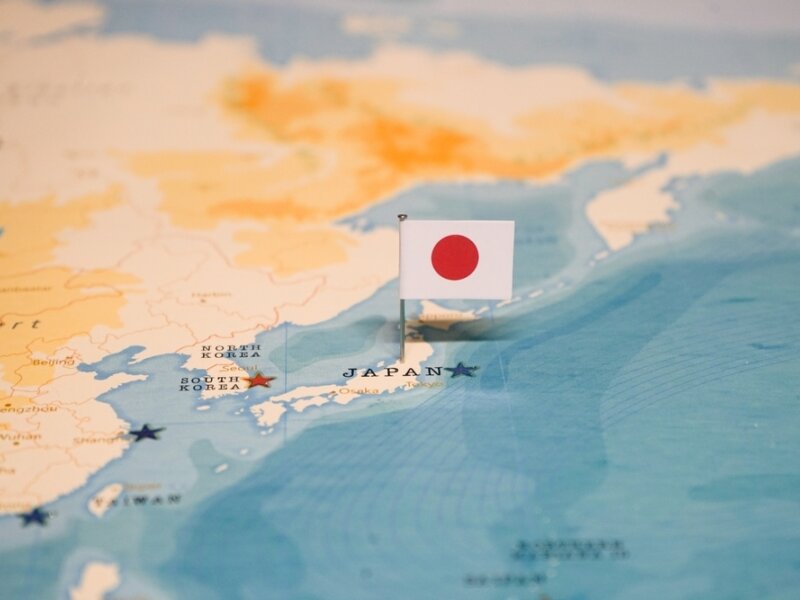Libya: Latest developments
In a changed international context, Italy continues its efforts to stabilise the country. By Daniele Ruvinetti

As many as twenty-one municipalities in Southern Libya will undergo substantial interventions to improve infrastructure and basic services and strengthen private sector development under the EU-Funded “Baladiyati” programme, carried out in cooperation with the Libyan Ministry of Local Governance. Although its activities often do not make the headlines, since 2018, the programme has reached more than 3 million people in 27 Libyan municipalities and is now expanding to the south of the country, where these activities are considered fundamental by residents who have been suffering the burden of impoverishment for too long.
It is not surprising that Italy was one of the most committed countries backing this operation through its diplomatic representation, led by Ambassador Gianluca Alberini, who picked up the good work already done by his predecessor, Giuseppe Buccino. Even in the darkest years, Italy has always remained in Libya. It did so even when Libya’s internal political confrontation had turned into conflict – based on interests that were sometimes maneuvered by external actors. Italy has always followed the situation closely, also through the commitment of companies like Eni, whose role in the country is key.
In this current phase, in which a space for real stabilisation has emerged again (also through the electoral transition, according to a new roadmap resulting from regional realignments), Italy is leading some of the most important political and diplomatic initiatives in the country. Italy’s vision, as expressed by the Italian Government, is perfectly aligned with that of the United Nations.
Italy’s national interest is clearly at stake in Libya. On the one hand there is the security and political pressure produced by migratory flows directed to Italy, which transit through Libya to reach the Mediterranean. This can cause tragic catastrophes such as the 14 June shipwreck off the Peloponnese of a fishing boat from Cyrenaica with up to 800 migrants on board, for whom search operations are still ongoing, but with very little hope. On the other hand, there is a need to contain potential actions of actors such as Russia – still present through the Wagner Group in Eastern Libya – who might have totally divergent interests in stabilisation.
For Moscow, the creation of a multipolar framework in international affairs coincides with the structuring of a multi-conflict system. This includes destabilisation along multiple segments and is aimed at creating fronts to attract attention and involvement – i.e. efforts – from strategic rivals. This is a well-known strategy, which can only be contained and countered with presence, incisive and constant action and multiple commitments, especially in moments that could change the course of history – as is perhaps happening in Libya, where the country could be facing a new opportunity.
The apparent Italian-French alignment on Libya is very interesting in this regard. The aim is to press all key local stakeholders – starting with Tripolitania’s Prime Minister Abdul Hamid al-Dbeibeh and Benghazi’s military chief Khalifa Haftar – into creating a balance in the current internal context. Only through this consensus can political, social and military stability be achieved and Libyan people be allowed to go to the polls and - above all – express a vote (presidential and parliamentary) that will be universally accepted.
Paris and Rome now seem interested in abandoning their distant positions and following the process together under UN auspices. This is also the result of a changed regional context. The Libyan “issue” has been expected to benefit from this climate of general détente for a couple of years now. However, the stalemate and the return of friction in the past months, testify how complex and delicate this is. However, the unsustainability of the status quo has emerged several times, with renewed armed clashes between militias in Tripoli last summer bringing back dark scenarios.
Without any doubt, some of the Libyan factions are benefitting from the current situation. There are always those who capitalise from the chaos. For these groups, the order that elections could bring would mean losing their positions of power. In this regard, a political commitment by a united Europe – represented by the Franco-Italian axis – could also lead the Libyans to isolate certain actors and understand they are the country’s problem. At the same time, the international community should help Libya build a system of checks and balances starting from the electoral law. This will allow elections to have well-defined rules and, above all, a clear projection into the future. Otherwise, elections alone cannot be a cure-all. The hope is that Libyan citizens will not miss this opportunity.
In this regard, a positive development was the step forward taken by the 6+6 Committee, the system of dialogue between the House of Representatives and the Council of State, through which an agreement was reached on common ground on the legal texts for the governance of the presidential and legislative elections, as well as on the idea of forming a new Government with a limited mandate to organise the voting. Haftar supported the process, while there was reluctance on the UN side. However, such Libyan internal dynamics should be supported, not least because they receive consensus from various sides – including from personalities involved in the formation of Fathi Bashaga’s former government. A new government with a limited mandate could become a guarantor of internal political balance, under a unified organisational spirit in which the Government of National Unity’s PM Abdul Hamid al-Dbeibeh should also participate.


